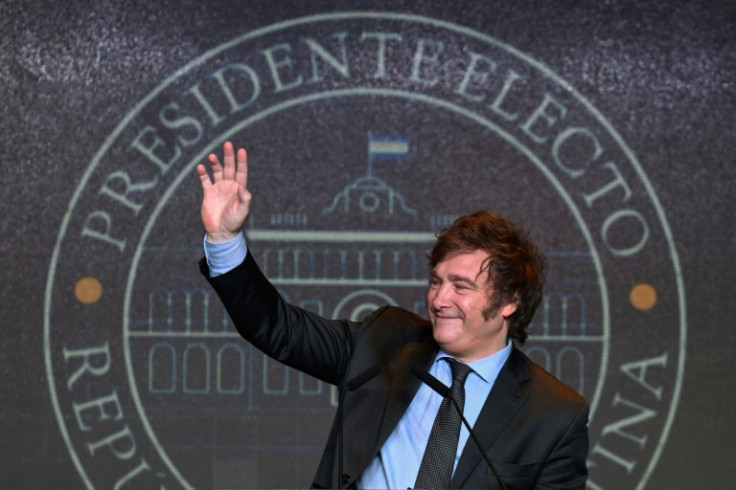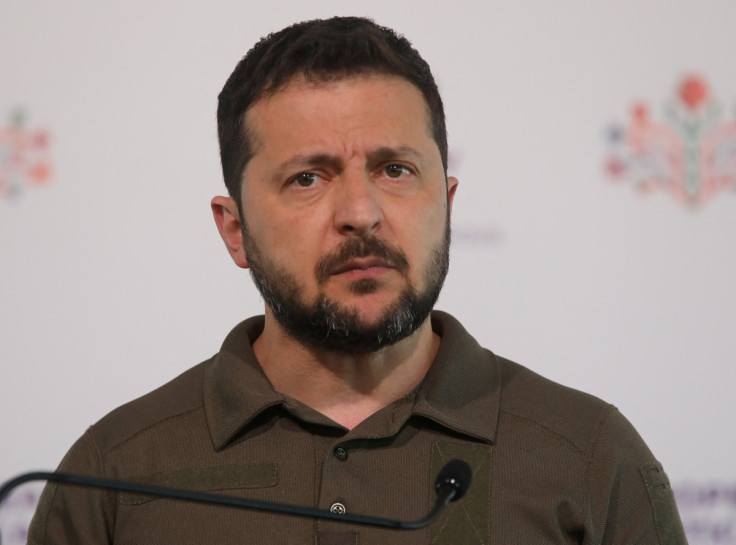
BUENOS AIRES - Hungarian President Viktor Orban and his Ukrainian counterpart Volodymyr Zelenskiy are at odds as the latter has threatened to block European Union aid for the former, as well as its accession process to the bloc unless the entire strategy of support for Kyiv is reviewed.
However, they will both be present in Argentina on Sunday (Dec. 10), as an unlikely mix of global leaders are set to attend the inauguration of Javier Milei.
The fact that Milei is the global right's man of the hour but has also stated that his foreign policy will be "in line with that of the U.S. and Israel" have contributed to forming the list of attendees, which includes former Brazilian President Jair Bolsonaro but not the current head of State, Luiz Inácio Lula da Silva, who rejected Milei's personal invitation and will send his Foreign Minister after being the target of vocal criticism during his campaign.

Another high-profile guest will be Santiago Abascal, head of Spanish far-right party Vox. And while there was speculation about the possibility that former U.S. President Donald Trump would also attend, this will finally not be the case.
Juan Sebastian Gonzalez, Special Assistant to the President and Senior Director for the Western Hemisphere, National Security Council and the White House will represent the Biden administration, along with Jennifer M. Granholm, Department of Energy secretary.
Milei visited the U.S. ahead of his inauguration, meeting with multiple top Biden Administration officials including National Security Advisor Jake Sullivan and Assistant Secretary of State for Western Hemisphere Affairs Brian Nichols after an introductory negotiation with the IMF in Washington.
Other heads of state set to attend the ceremony will be some of Argentina's closest neighbors: Chile's Gabriel Boric, Paraguay's Santiago Peña, Uruguay's Luis Lacalle Pou and Ecuador's Eduardo Noboa, while Milei expressly excluded counterparts with contrasting ideologies: the presidents of Cuba, Venezuela, Nicaragua and Iran.
In fact, this week Nicaragua's government withdrew its ambassador from Argentina on after Milei criticized the former, saying Buenos Aires would not do trade with "dictators" or "communists," and would also recall its envoy. It is worth noting that initially Ortega and Vice President Rosario Murillo had congratulated Milei for winning the elections last month.
Another sample of the incoming government's foreign policy alignment is the confirmation that Argentina will not join the BRICS bloc. Diana Mondino, Milei's pick for foreign minister, released a succinct statement on X (formerly Twitter) with the announcement: "We aren't joining BRICS," she said.
This partially reverses plans made under the previous Peronist administration to join the inter-governmental economic organization comprising China, Russia, Brazil, India and South Africa. Argentina received a formal invitation to join the group on Jan. 1, 2024, along with Saudi Arabia, Iran, the United Arab Emirates, Ethiopia and Egypt.
While President-elect Milei's key policy promises have shifted over time, his condemnation of the Chinese government was a consistent staple of his campaign rhetoric. "We will not make deals with communists," Milei said in an interview with Bloomberg in August.
China has been Argentina's largest trading partner since 2020, thanks to surging Argentine exports of agricultural products to China and heightened Chinese investment in key sectors like mining and transportation over recent decades.
"If the BRICS are already our primary trading partners, what's the difference?" Mondino said at a conference in Buenos Aires in late November.
Mondino's comments confirm expert analysis that while Milei's public comments may appear hawkish towards China, his administration is unlikely to substantially alter the deep economic ties that exist between the two countries.
© 2025 Latin Times. All rights reserved. Do not reproduce without permission.






